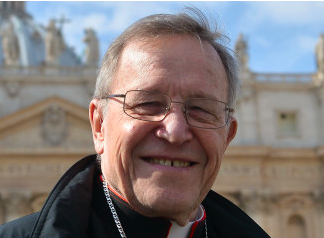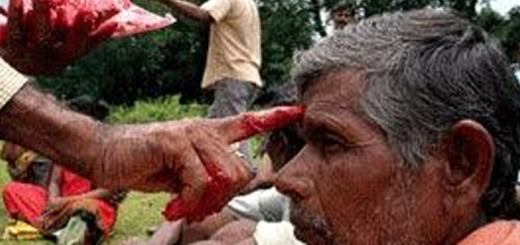Francis wants a hierarchy that listens to ‘sensus fidei’ – Cardinal Kasper:

ByJoshua J. McElwee – National Catholic Reporter, usa. McElwee is NCR Vatican correspondent.
Pope Francis wants to retool the Catholic hierarchy so that it not only defines and enforces church teachings, but also listens and responds to how laypeople understand God's will, German Cardinal Walter Kasper said.
Kasper, a noted theologian whose writings are known to have influenced Francis, said the pope wants to create a "listening magisterium." Kasper said one concept important to the pope is that of the sensus fidei, or the capacity of individual believers and the church as a whole to discern the truths of faith.
That concept, Kasper said, "was emphasized by the council … [but] Francis now wishes to give it complete meaning."He wants a listening magisterium — that makes its position, yes," the cardinal said, "but makes its position after it has heard what the Spirit says to its churches."
"Catholicity includes … all," Kasper said. "Women and men, young and old, clergy and laity. The laity are not only recipients, but also actors. Not only objects, but much more, subjects in the church."Kasper, the former president of the Pontifical Council for Promoting Christian Unity, spoke Saturday at Washington's National Cathedral as part of a landmark theological conference on the Second Vatican Council co-hosted by the cathedral, Georgetown University, and Marymount University in Arlington, Va.
Among other speakers at the May 21-24 conference were Cardinal Jean-Louis Tauran, the president of the Pontifical Council for Interreligious Dialogue, and Cardinal Luis Tagle, the archbishop of Manila and new president of Caritas Internationalis.The conference was titled: "Vatican II, Remembering the Future: Ecumenical, Interfaith and Secular Perspectives on the Council's Impact and Promise." A gathering of the Ecclesiological Investigations International Research Network, the event saw an estimated 140 academics reflect on the meaning and import of the council and how its vision might be carried forward.
The Second Vatican Council was a 1962-65 global meeting of Catholic bishops that led to significant changes in the church, including modernization of the Catholic liturgy and redefining the relationship between the church and the modern world.At a morning session Saturday that was focused primarily on hearing how Vatican II affected ecumenical relations with other Christian churches, Kasper gave a wide-ranging overview of ecumenical efforts of the past decades.
The German cardinal, who has spent much of his church career on ecumenical efforts, also outlined what he sees as problems facing such dialogues in the future and gave four perspectives he said might help overcome difficulties.Proposing an overarching concept of apostolicity for Christian churches, Kasper related his message to the call of Francis for a church that continually goes forth.
"Again and again, we can and must allow ourselves to be surprised by God and his spirit," he said. "In this sense, ecumenism occurs not in standing still, but in moving on. Only water that flows remains fresh, while standing water turns bad and becomes stale." "A church that goes back to its apostolic origins goes also forwards to the future," he said.
Kasper then said that concept of going forth has "great significance" and related it to a concept known as the "hermeneutic of continuity." That concept, embraced by many Vatican cardinals and Pope Benedict XVI, stresses that Vatican II did not repeal earlier church teachings or traditions."Ecumenically, this concept, it seems to me, to be of great significance since it frames the subject of continuity with the apostolic origins," Kasper said. "It is fundamental for our churches but evokes among the churches a conversion."
"The hermeneutic of continuity must — for the sake of the future, the sustainability of Christianity — always be a hermeneutic of reform," he said.Kasper also said ecumenical language in the Catholic church has always stressed dialogue, which he said involves reciprocal listening."What [dialogue] signifies is not hierarchical thinking, but cross-thinking," the cardinal said. "It is to be open to value the others, seeking communalities, and entering into a reciprocal learning process in creative collaboration."
Speaking of how Francis sees the value of the different Christian churches, Kasper said: "The whole is greater than the parts and is therefore not the sum of the parts." "For him, the mode he proposes is a … a multifaceted prism, in which all parts form a whole, but they participate in the whole in different ways," he said. "And it is precisely because they maintain their uniqueness that they contribute to the … beauty of the whole."
The conference was the ninth for the Ecclesiological Investigations International Research Network, a global network of theologians co-founded and led by Georgetown professor Gerard Mannion. It follows previous events in India, Belgium and England.Among others speaking at the conference, which saw a diverse range of viewpoints: noted moral theologian Fr. Charlie Curran; former Catholic Theological Society of America presidents Richard Gaillardetz and M. Shawn Copeland; South Sudan Bishop Eduardo Hiiboro; and Nigerian Jesuit Fr. Agbonkhianmeghe Orobator.
On Friday, Tagle called on Catholics to avoid looking to the pre-Vatican II church with a sense of nostalgia and to instead embrace and live out the council's sense of openness to the modern world."Many people want to witness to Christ in some idealized past that they long for with nostalgia," he said. "No, we witness to Christ now, here, where we are in our world."
Focusing on ecumenical dialogue, Kasper also called for a "down-to-earth ecumenism" that is not limited to only academic theological discussions."The unity of the church and the unity of humanity are fatefully interwoven today," Kasper said. "Therefore, it is our sacred duty … that we do not accept the division between Christians."
"The divisions within the church are … structures of sin. They thwart God's plan for salvation," he said. "They are deep wounds in the body of Christ and the blame lies … with all sides." Commenting on the dialogues that have taken place since the council, Kasper said: "Anyone who has experienced the previous denominational estrangements … can only be amazed on all that has grown in the last decades … and be infinitely thankful for it."
"We have succeeded in building bridges out of the trenches … through which people can encounter one another," he said.But even after decades of dialogue, Kasper said, the ecumenical dialogues are at a perilous point."Agreement is nowhere in sight," he said. "This situation is extremely dangerous. If we are not in agreement of where we are and going, there is a great danger that we will disperse in different directions."
"The great expectations following the council have not been followed," he said. "We are at a standstill.An ecumenism of love, of encounter, of listening and friendship are what is needed."Kasper ended his talk by quoting the late German Jesuit Fr. Karl Rahner, who said the council "was only the beginning of a beginning." "With the current pontificate, a new phase of its reception has begun," he said.
















